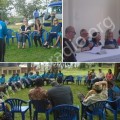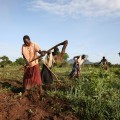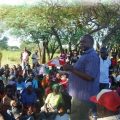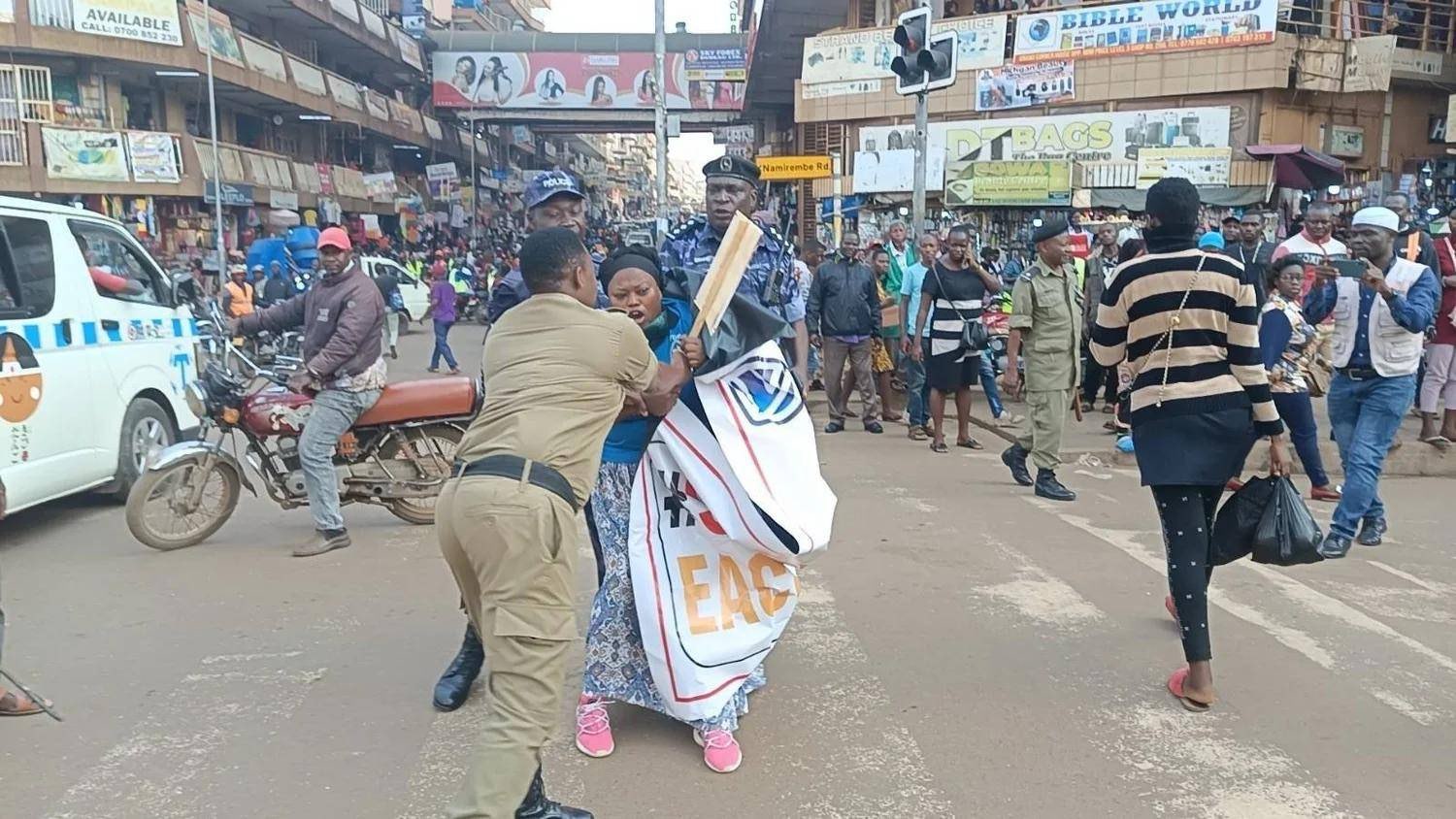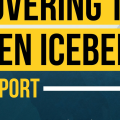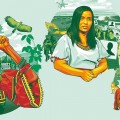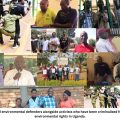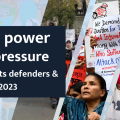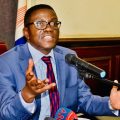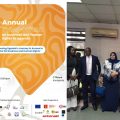By Witness Radio Team
As land and environmental rights defenders face ongoing threats for protecting community land and territories affected by development projects, a new trend shows attacks increasingly targeting women defenders.
According to the latest research report by Natural Justice, based on data from the ALLIED Coalition, women land and environmental defenders accounted for 6% of all documented cases between 2022 and 2025.
In its recent report titled ‘The Situation of Women Environmental & Human Rights Defenders Across Africa,’ released in December 2025, a total of 261 attacks targeting land and environmental rights defenders across all countries since 2022 were recorded, highlighting the urgent need for policy change to protect women defenders better better better and sustain their vital roles.
“Across Africa, women environmental and human rights defenders (WEHRDs) are standing at the frontlines of the fight for land, water, and climate justice, and they are paying a steep price for their courage. From Kenya to the DRC, Uganda to South Africa, women activists confront not only repression but also deeply rooted patriarchal norms,” the report reads, aiming to inspire resilience and collective action.
Mary Mwangi, a land and environmental rights defender in Kenya, has been arrested more than eight times since 2020 for defending her community along Kenya’s coast against pollution, caused mainly by industries operating along the Mombasa highway in Nairobi.
“I’ve been facing numerous trumped-up charges since 2020 by the state on behalf of a private oil recycling company. The company is located right in the middle of a residential area where around 2,000 people live,” the woman defender reveals.
According to her testimony, the company began operations in 2019 without following due process and in violation of Kenya’s Environmental Management and Coordination Act. The company’s activities, including the delivery of used oil, its pre-treatment, and its refining into specific products, have had severe negative environmental impacts on residents.
“I was one of the residents who raised environmental concerns with company management, but no action was taken. The plant was operating against the will of the people, as there was no public participation in its development. Toxic gases were produced, endangering both human and livestock health and lives. The plant releases sulphuric acid, which is highly corrosive and has caused severe skin burns within the community,” she adds.
According to Mwangi, instead of addressing the concerns raised, the company’s response has been brutal, extending to her family and several community members through harassment, intimidation, arrests, and trumped-up charges.
“The company management conspired with local police in a series of harassment and intimidation campaigns that resulted in arrests and fabricated charges targeting residents, particularly families championing community rights. I was among the first to be targeted because I mobilised the community. There are currently four cases in court involving me, my family, my husband and children, and a few community members supporting this struggle.”
Beyond the legal harassment, Mwangi says her movements have been restricted, and she continues to face threats to her life.
“I cannot move freely because my movements are being monitored by company management. The biggest threat I face now is fear for my life and that of my family. There are compelling individuals within government who have openly shown they will stop at nothing,” she says.
Such conditions, once more commonly faced by male defenders, are increasingly affecting women as well. Mary is not alone; many other female defenders are falling prey to powerful multinational corporations and governments intent on grabbing community land for harmful projects.
Women defenders face disproportionate risks, including gender-based violence, criminalisation, intimidation, and exclusion from decision-making processes. Despite their critical contributions, their experiences of WEHRDs are often overlooked, their voices sidelined, and their struggles underreported.
“They endure smear campaigns, sexual violence, online abuse, and many other abuses for daring to challenge power. Many are targeted precisely because they are women, with their gender weaponized to silence their voices and discredit their leadership,” the report adds, emphasizing the threats women defenders face and the need for protective measures.
According to ALLIED Coalition data, of the 261 attacks reported, 18 targeted women, compared to 88 against men, with 70 cases categorized as unknown or unspecified, emphasizing the urgent need for protective measures for women defenders and a clearer understanding of the scale of the crisis.
Uganda—often referred to as the Pearl of Africa—has emerged as a hazardous zone. The report shows that 94 cases were reported from Uganda, followed by the Democratic Republic of Congo and Tanzania, each accounting for around 15% of attacks, with 35 and 34 cases, respectively.
“Environmental activists have been particularly targeted by the Ugandan government, with the most high-profile cases involving protests against the East African Crude Oil Pipeline (EACOP).
Physical attacks and threats against environmental human rights defenders have escalated, with no indication they will subside. These acts are perpetrated by both government officials and representatives of oil companies,” the report notes.
The most frequent category of attacks recorded was “threats or other harassment” (33 cases or 18%), indicating sustained intimidation short of overt violence. Arbitrary arrest or detention accounted for 16 cases (9%), physical attacks for 15 cases (8%), and death threats for 13 cases (7%), underscoring the persistence of criminalisation and direct violence. A smaller number of entries (9 cases or 5%) involved non-violation-related support such as solidarity or medical aid, suggesting limited preventive or recovery-oriented interventions.
A third of the cases were linked to the fossil fuel industry (oil and gas), with mining and energy accounting for 25 and 23 attacks, respectively.
Across Africa, land continues to be targeted by corporate interests from the West, often branding themselves as developers or job creators. African governments, in turn, allocate vast tracts of land to these companies, much of it traditionally used by Indigenous or local communities.
For years, the continent has been shaped by the misleading narrative that Africa possesses vast, vacant, or underutilised land awaiting transformation into industrial farms or profitable carbon markets.
However, a 2025 report by the Alliance for Food Sovereignty in Africa (AFSA), Land Availability and Land-Use Changes in Africa, dismissed this narrative. Drawing on satellite data, field research, and interviews with farmers across the continent, the study revealed that Africa’s landscapes are far from empty.
“Much of the land labelled as ‘underutilised’ is, in fact, used for grazing, shifting cultivation, gathering wild foods, spiritual practices, or forms part of ecologically significant systems such as forests, wetlands, or savannahs,” the report stated.
In conclusion, the Natural Justice report calls on African states to recognise and protect WEHRDs by adopting national laws and policies that explicitly acknowledge their role and the state’s duty to protect them. This includes meaningful consultation with civil society and alignment with the UN Declaration on Human Rights Defenders and the African Commission on Human and Peoples’ Rights.
It further calls on African governments to tackle the drivers of harm against WEHRDs by protecting land and environmental rights, ending criminalisation and harassment, and preventing and addressing gender-based threats and violence. Ensuring the recognition and protection of women defenders and their communities remains critical.
Despite the stress and fatigue caused by her work, Mary Mwangi remains committed to the struggle.
“I will continue the work and try new strategies. We are considering organising and implementing projects around environmental rights as a tool for environmental justice. If communities are well sensitised and understand their rights, they may support the struggle. That would also help reduce the risks faced by my family,” she concludes.
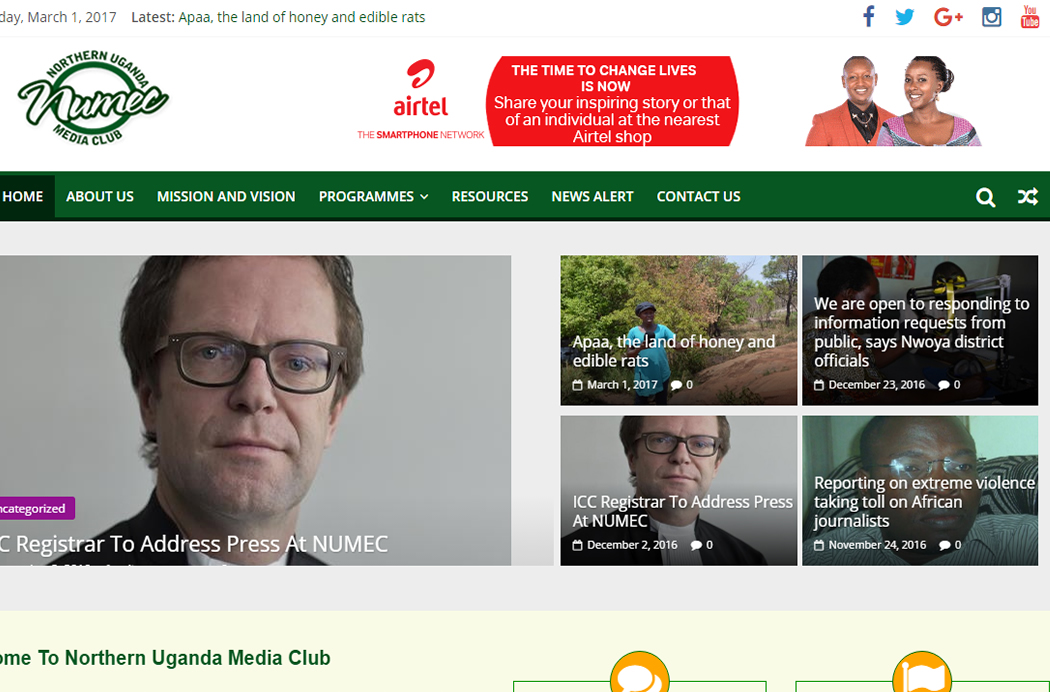

 MEDIA FOR CHANGE NETWORK2 weeks ago
MEDIA FOR CHANGE NETWORK2 weeks ago
 MEDIA FOR CHANGE NETWORK3 days ago
MEDIA FOR CHANGE NETWORK3 days ago
 MEDIA FOR CHANGE NETWORK2 weeks ago
MEDIA FOR CHANGE NETWORK2 weeks ago
 MEDIA FOR CHANGE NETWORK2 weeks ago
MEDIA FOR CHANGE NETWORK2 weeks ago
 MEDIA FOR CHANGE NETWORK19 hours ago
MEDIA FOR CHANGE NETWORK19 hours ago
 NGO WORK2 weeks ago
NGO WORK2 weeks ago
 FARM NEWS1 day ago
FARM NEWS1 day ago


